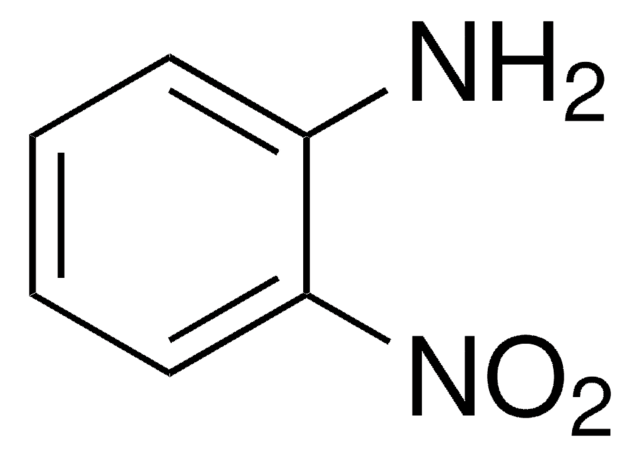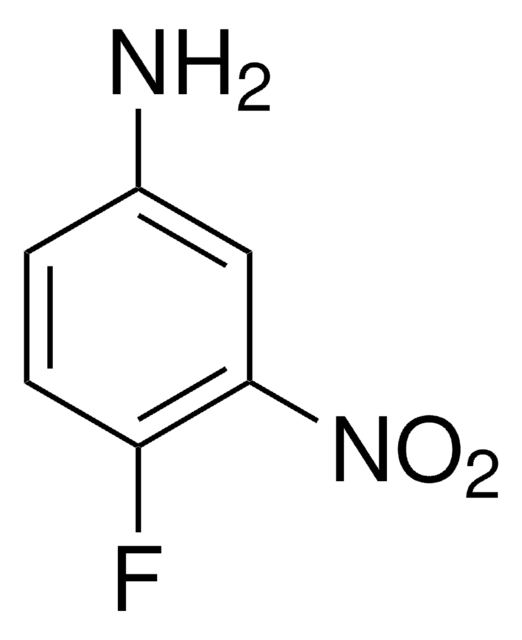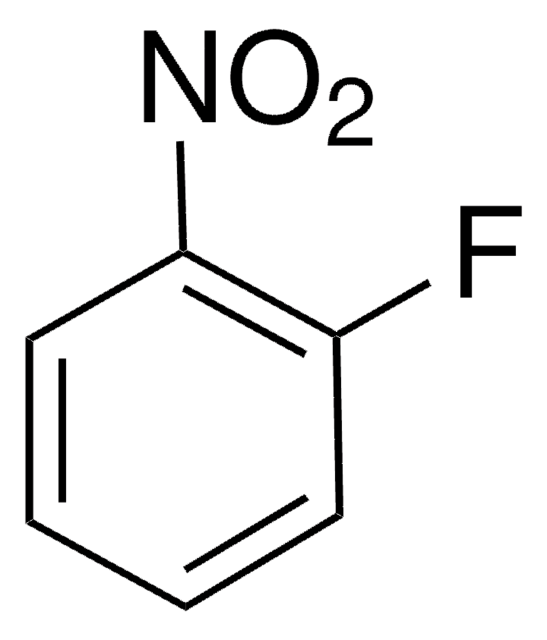About This Item
Recommended Products
Quality Level
Assay
98%
form
powder
mp
97-100 °C (lit.)
functional group
fluoro
nitro
SMILES string
Nc1cc(ccc1F)[N+]([O-])=O
InChI
1S/C6H5FN2O2/c7-5-2-1-4(9(10)11)3-6(5)8/h1-3H,8H2
InChI key
KJVBJICWGQIMOZ-UHFFFAOYSA-N
Looking for similar products? Visit Product Comparison Guide
Signal Word
Danger
Hazard Statements
Precautionary Statements
Hazard Classifications
Eye Irrit. 2 - Flam. Sol. 1 - Skin Irrit. 2 - STOT SE 3
Target Organs
Respiratory system
Storage Class Code
4.1B - Flammable solid hazardous materials
WGK
WGK 3
Flash Point(F)
195.8 °F - closed cup
Flash Point(C)
91 °C - closed cup
Personal Protective Equipment
Regulatory Listings
Regulatory Listings are mainly provided for chemical products. Only limited information can be provided here for non-chemical products. No entry means none of the components are listed. It is the user’s obligation to ensure the safe and legal use of the product.
JAN Code
155853-25G:
155853-VAR:
155853-100G:
155853-BULK:
155853-5G:
Choose from one of the most recent versions:
Already Own This Product?
Find documentation for the products that you have recently purchased in the Document Library.
Our team of scientists has experience in all areas of research including Life Science, Material Science, Chemical Synthesis, Chromatography, Analytical and many others.
Contact Technical Service










